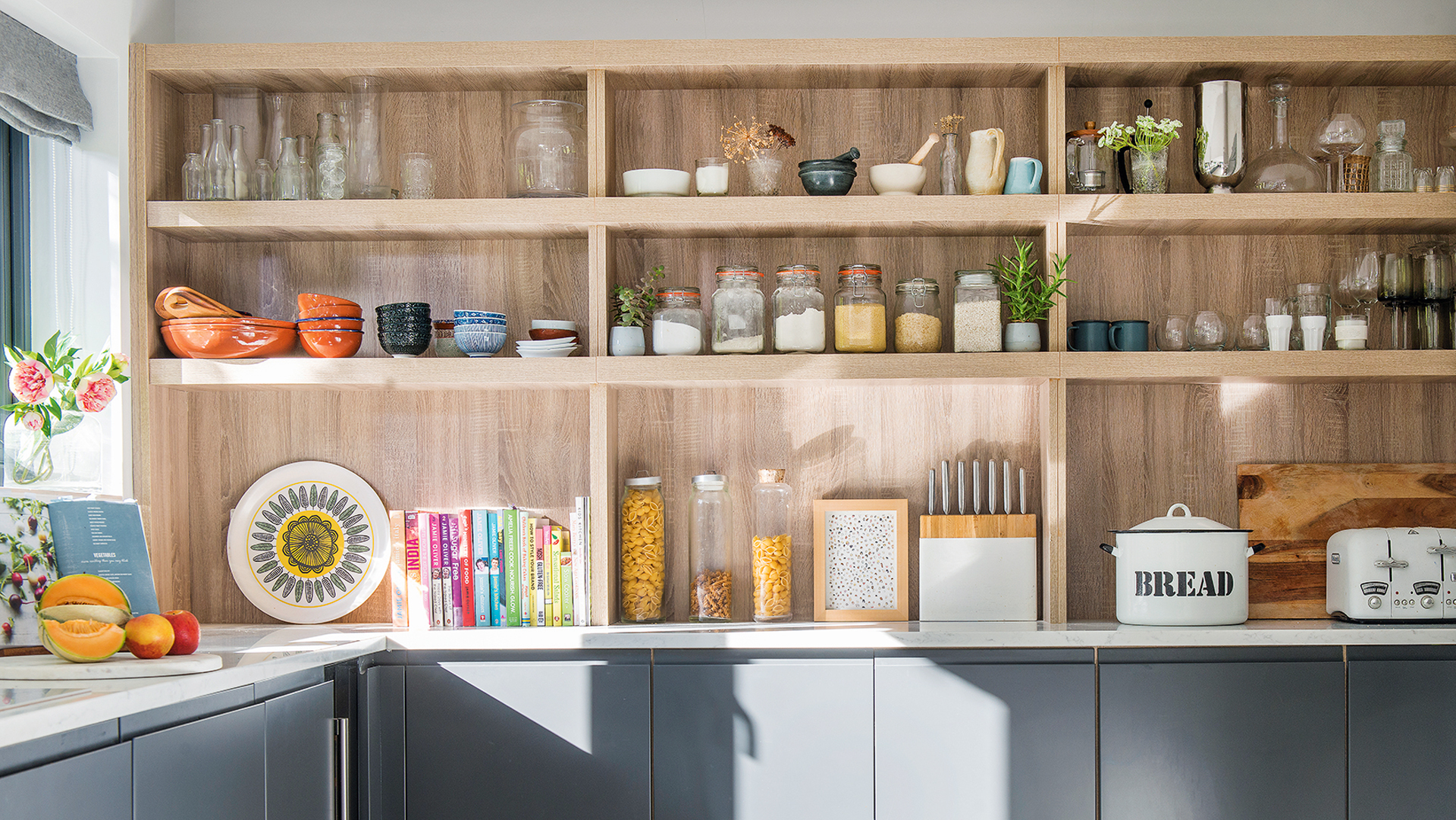
The kitchen is the engine of the home – it is where we make our morning coffee, prepare dinner, and it often doubles up as an entertaining space. So it pays to keep it tidy with a few kitchen organising techniques that work for your household – as well as avoiding some common kitchen organising mistakes.
Insufficient kitchen storage ideas are highly detrimental to this highly functional space because a well-thought-out kitchen means you have everything you need close to hand when cooking while making the most of the space available.
We asked professional home organisers to share the most common mistakes they see clients make, and what to do instead for a kitchen that runs like clockwork.
Common kitchen organisation mistakes to avoid
Avoiding these mistakes will make food prep and cleanup easier and more efficient, whether you are organising a small kitchen or a larger space it pays to keep these in mind.
1. Crowding the countertops

We can run out of countertop space incredibly quickly when cooking, leaving barely enough room for a chopping board and making it awkward when taking hot dishes out of the oven. A lack of "landing" space is a common kitchen design mistake that makes the process of preparing meals (and cleaning the kitchen afterwards) more stressful, increasing the temptation to order that takeaway.
So for a calmer kitchen and healthier eating habits, it's a great idea to take everything off your worktops and see what can be stored elsewhere to leave only organised kitchen countertops.
"As a professional home organiser, I see far too many small kitchen appliances taking up precious counter space," says Brenda Scott from Tidy My Space. Brenda also suggests deciding where items should go by how often you use the item.
Interiors therapy and Feng Shui expert Suzanne Roynon points out that clients often waste space on their counters by filling them with knives, utensils, kinds of vinegar, and oils.
"Knives are essentially a weapon, so it makes sense to put them in the drawer and only use the ones you need," Suzanne comments. "Wooden knife blocks are almost impossible to clean, and the slots tend to be greasy and harbour dust, so the drawer is a much better and safer option all around," she says. Thus why she feels knife blocks are one of the negative things you should declutter from a home entirely.
"Oils and vinegar will deteriorate more quickly if left out in a bright, warm space, so to keep them fresh and delicious, keep them in a pantry or cupboard."
2. Buying containers without measuring
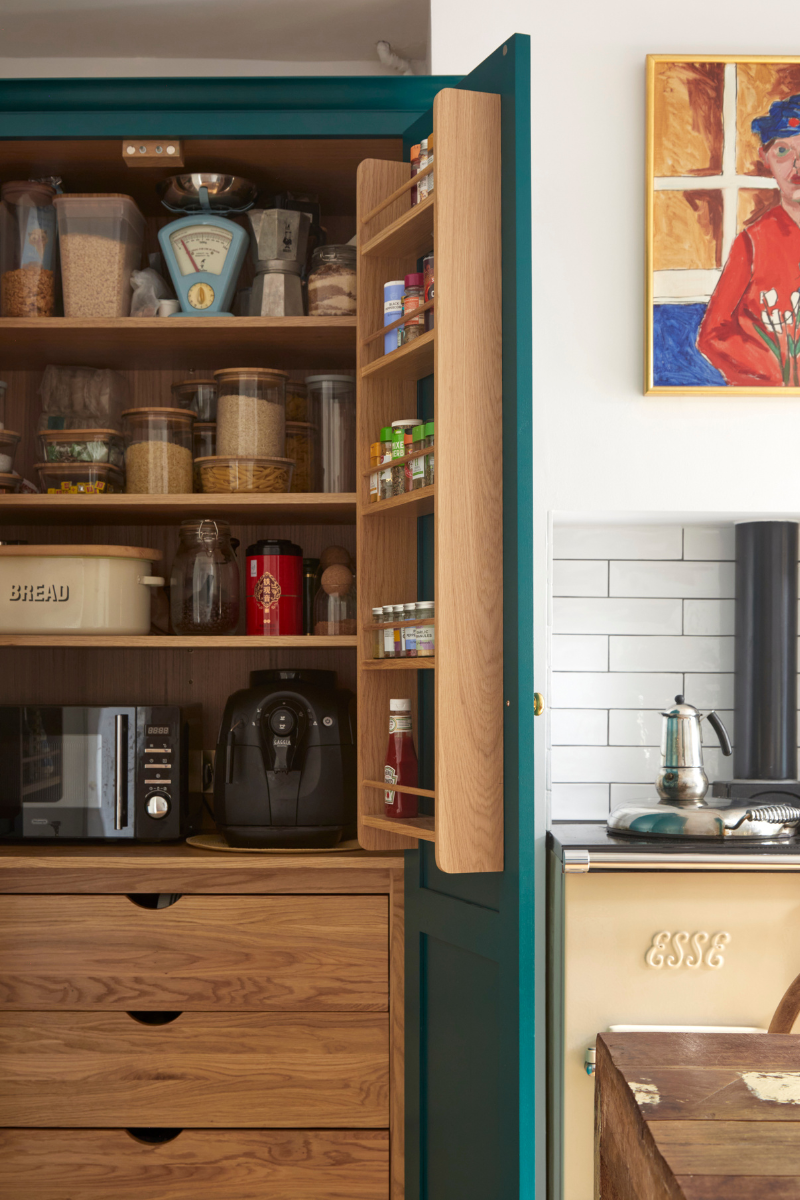
There are all kinds of clever products out there to help with organising kitchen cabinets, making the most of vertical cupboard space, and giving items a designated home in our kitchen drawers – provided that they actually fit.
"The biggest mistake people make is purchasing baskets or containers before measuring the space it's to go in. Too big, too tall, or too small so that it doesn't fit every item, is a waste of time and money," continues Brenda Scott. Tapered food containers can take up unnecessary space, so look for stackable options that fit together neatly inside cupboards instead.
You can find expandable solutions that will give you some wiggle room, like this acrylic spice drawer organiser, at Amazon, that will adjust to the size of your drawer. Bamboo drawer dividers, also at Amazon, are another good option for organising kitchen drawers, but it's still important to measure before buying.
3. Failing to zone the space
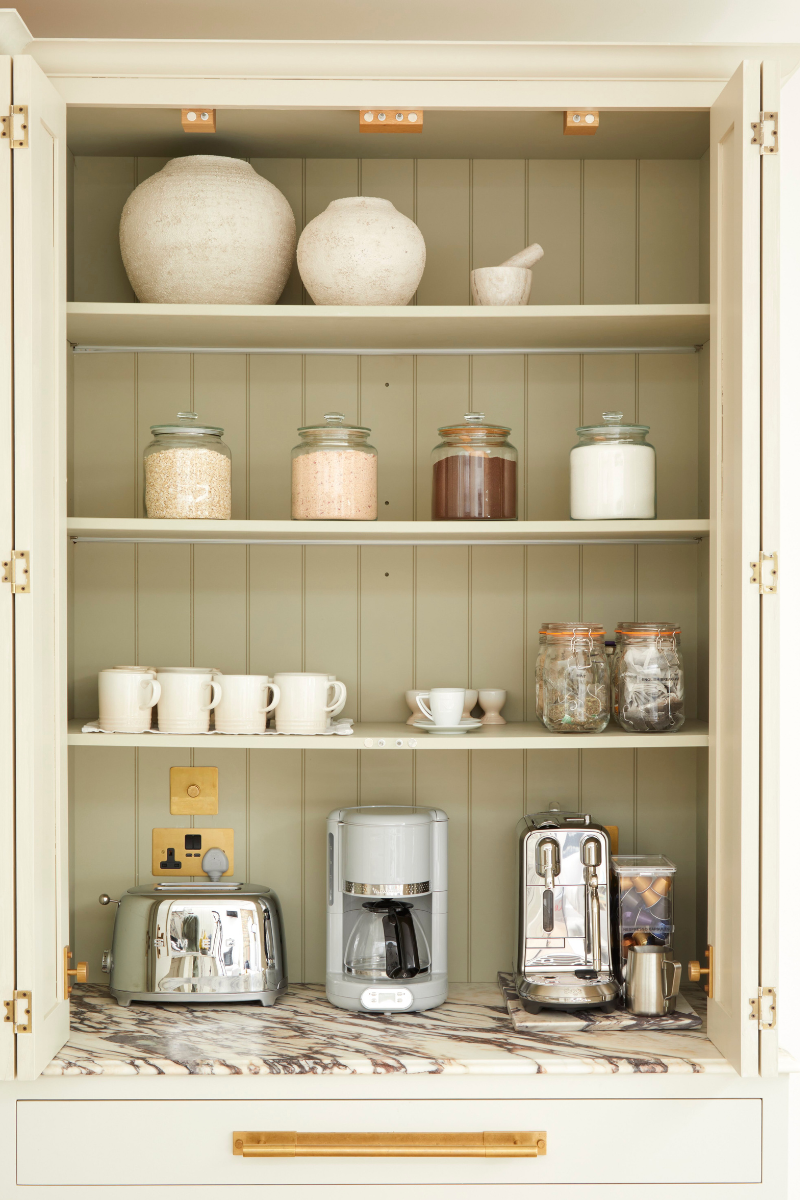
Failing to create clearly defined zones is a common interior design mistake to avoid but It's not just interior designers that recommend creating zones – home organisers also say that making mini zones within the kitchen will make day-to-day tasks easier.
"A really common mistake is not creating zones in your kitchen," comments Laura Price, founder of The Home Organisation. "Zones work by grouping items together based on their purpose or use – so tasks become more efficient."
"In a kitchen, creating a cooking zone would consist of having your oils, salts, spices, cooking utensils, pots and pans all close by to your oven and hob. This makes your kitchen much easier to use."
4. Not containing small items
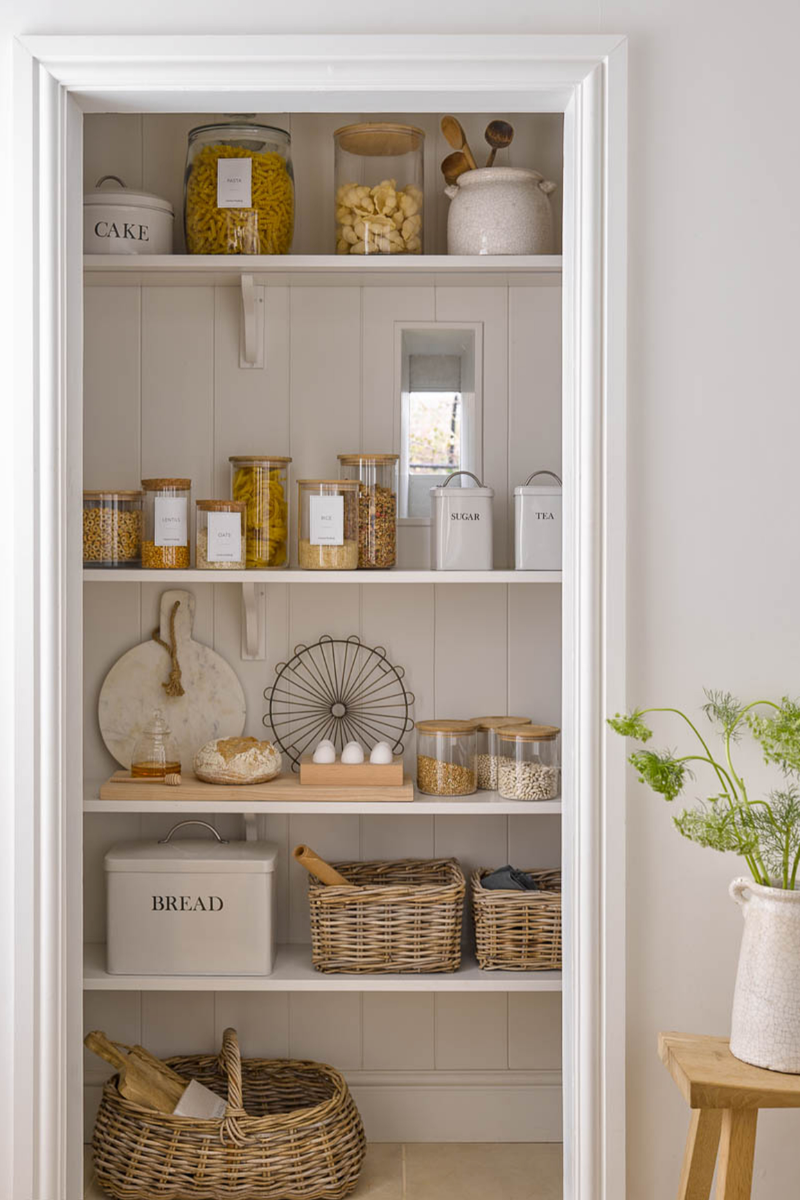
Another mistake that Laura Price often sees clients make is storing items directly onto deep shelves or drawers without containing them first, which makes it hard to find what you need.
"Storing your pantry items, which tend to be quite small, directly onto deep shelves is a recipe for an inefficient pantry. It may not seem that important but trust me, it is!" she insists. "It’ll make seeing what you have much harder with ingredients bound to get lost at the back.
"Instead, use a storage box that matches the depth of your shelves, so you can pull it out easily and see exactly what ingredients you have." This will make organising your pantry much easier, as it prevents baking supplies and other kitchen essentials from getting forgotten and could mean you end up throwing less away. We love these stackable storage containers, at Amazon.
5. Trying to do it all at once
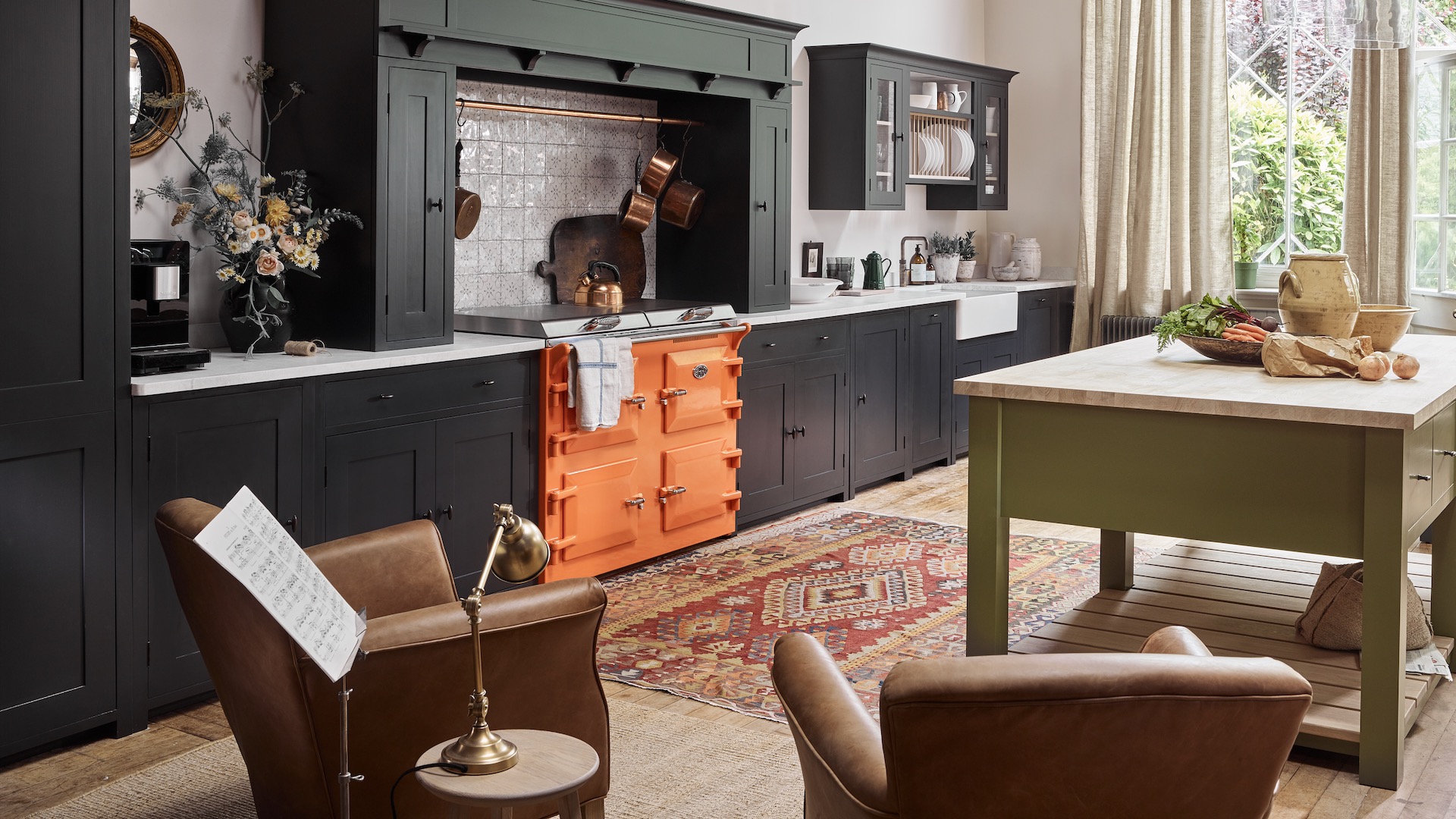
Similarly to decluttering your home generally, Craig Horeau, APDO member and managing director of A Tidy Mind London, says the biggest kitchen organising mistake we make is trying to do it all in one go and procrastinating, which goes hand in hand.
"Doing it all in one go will lead to overwhelm and then procrastination! Delaying decisions on where to put items, or taking too long to decide on what goes and what stays leads to clutter building up," Craig shares.
"This means that trying to figure out how to organise becomes a lot more stressful than it should be," Craig adds that kitchen organising doesn't have to be set in stone and things can be changed around if you find the system isn’t working for you. The key is to stay on top of it so the task gets simpler down the line.
6. Overcomplicating things
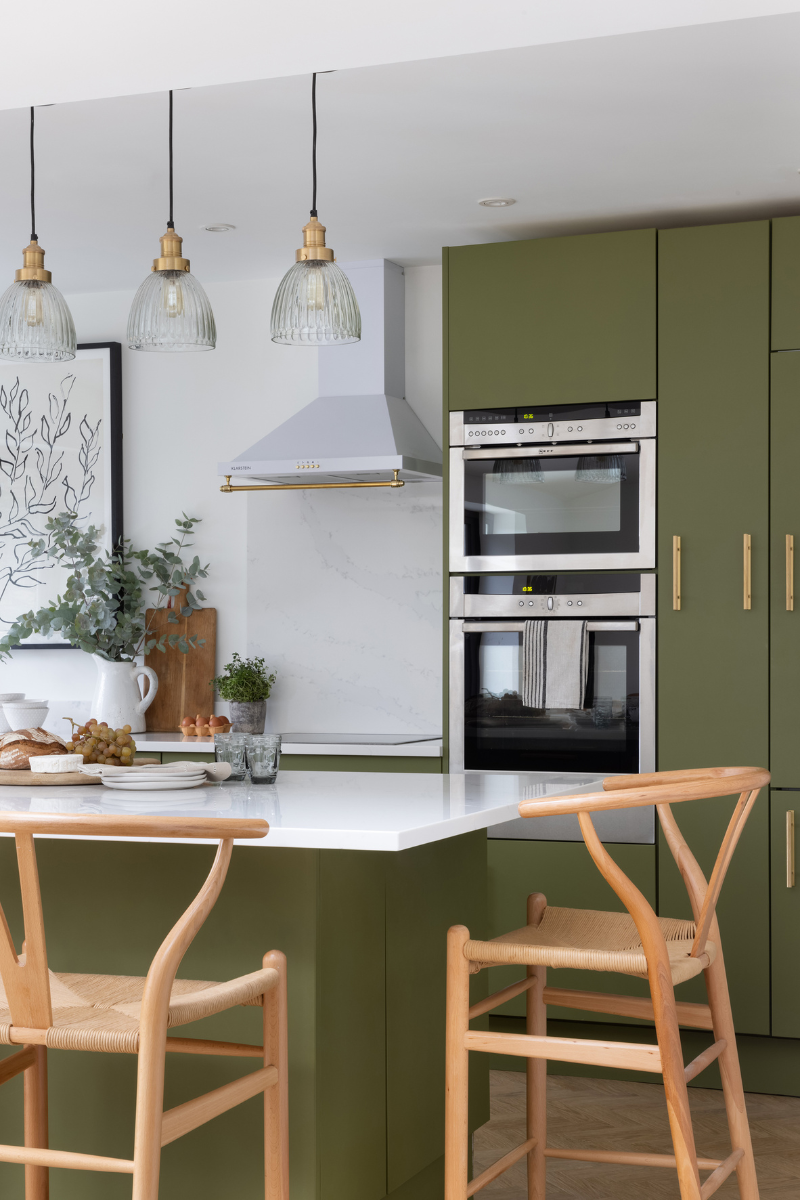
Professional organiser Vicky Silverthorn from You Need A Vicky cautions against copying aesthetically pleasing organising systems we might have seen online due to the fact they can be hard to maintain.
"I think it’s very easy to see social media and try and recreate the immaculate lines of storage jars with labels and the turn tables and so on, but, for many homes, this will hinder and not help," Vicky says.
"If you are time-poor and don’t particularly love organising or spend much time on it, remember this look can be time-consuming to keep up."
Kitchen expert and founder of Olive & Barr, Al Bruce, agrees: "Don't get lured into complex storage solutions unless you have the time, patience, and meticulous attention to detail required to maintain them. Instead, opt for simple yet functional shelving and drawer organisers that allow easy access to your pots, pans, and utensils."
7. Overcrowding pots and pans
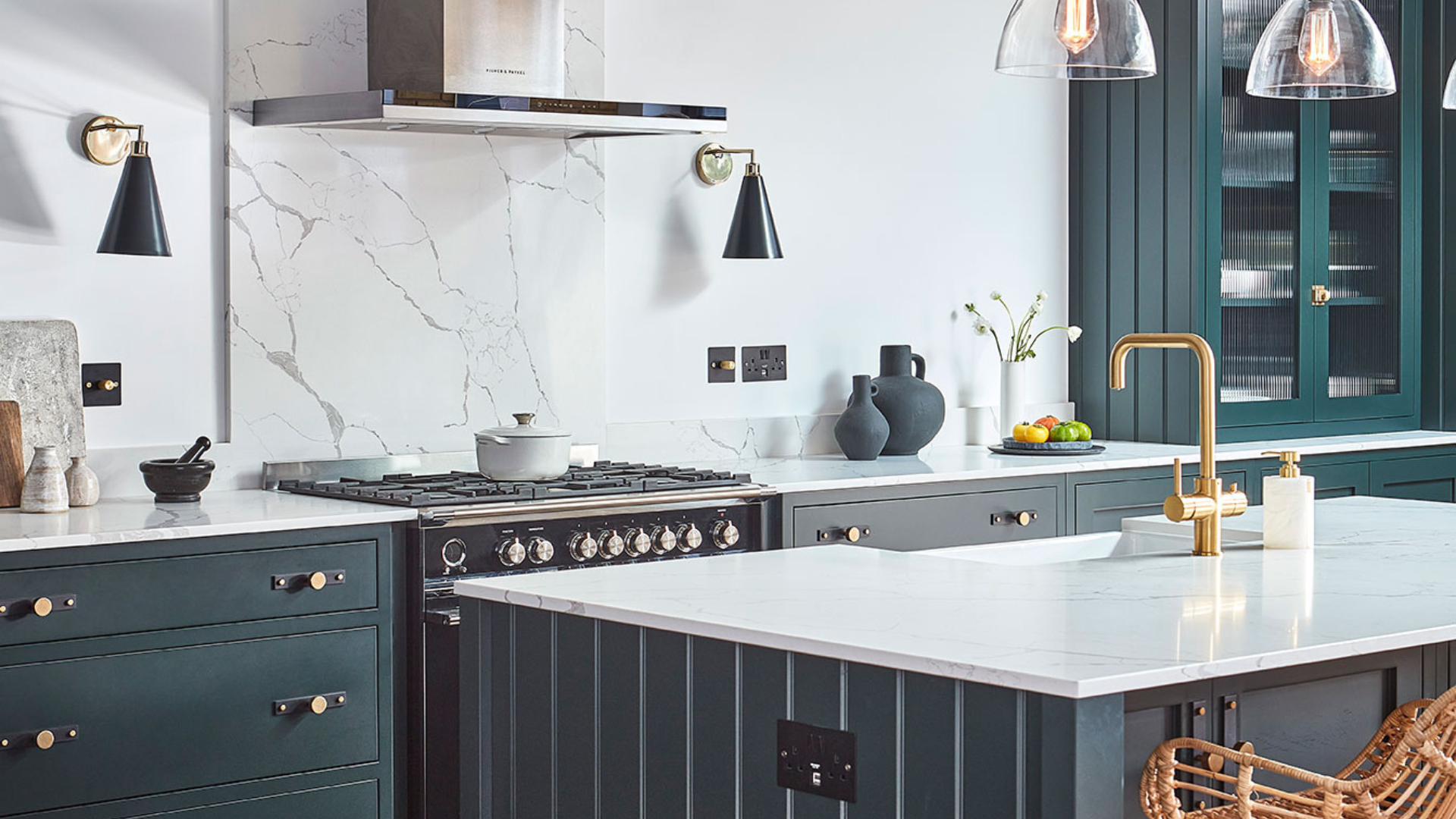
Thoughtful pot and pans storage ideas are essential but so is keeping an eye on your cookware collection. Pots, pans, and their lids are notoriously hard to store, especially non-stick ones that can't easily be stacked – perhaps a valid reason to choose the best induction pans and stainless steel pans.
Home organiser Laura Price recommends streamlining your collection, and if you're struggling for space, moving those you only use occasionally to another location (either in the kitchen or elsewhere in the home, depending on available space).
"Overcrowding pots and pans makes day-to-day cooking so much harder. Try and keep your most essential pots and pans close to the cooker and easily accessible."
How do I decide where to put things in my kitchen?
"I love this question because the answer is universal to every household, but the locations they choose will be unique to them," says interior therapy expert Suzanne Roynon. "In simple terms, place everything where it is most practical to keep it for you and your lifestyle."
"Crockery is often easiest placed close to the dishwasher, while mugs, tea and coffee are best stored near the kettle. Keep chopping boards and knives local to the work surface you feel most comfortable using (we all have a favourite spot) and pans with stovetop utensils in a cupboard or drawer close to the hob.
If the kitchen is a busy hub, position your best blender used for making health drinks and smoothies away from the hubbub around the sink and kettle to avoid overcrowding.
"Choose a cool, dry cupboard for tins, flour and dried goods to maintain them in good condition.
"Never be afraid to brutally declutter items and objects you simply never use. Salad spinners, pasta rollers and bread makers frequently gather dust and take up valuable real estate in homes. Release them for use by someone who can genuinely enjoy using them."
Laura Price says the shape, size and weight of items can also affect where they’re best placed. "You don’t want to be putting your heaviest appliances up at the top of a cabinet – that’s only going to end badly! The same goes for larger serving or baking dishes, they don’t always fit where you want them to, so you may have to adapt your layout or consider storing them elsewhere in the home."
Where should the kettle and toaster go in the kitchen?
Lisa Coe, founder of Happy Space Organised by Lisa, says when deciding where to place your kettle and toaster in your kitchen, ideally they should be within easy access to your bread, tea and coffee-making supplies.
"Aesthetically speaking, placing your kettle and toaster in the corner of a worktop, close to a socket often looks best," she says, "leaving you with a nice clear stretch of worktop space free for food preparation." If you have the cupboard space, keep the toaster on a tray to put away after use, as this helps to keep counters clear.







